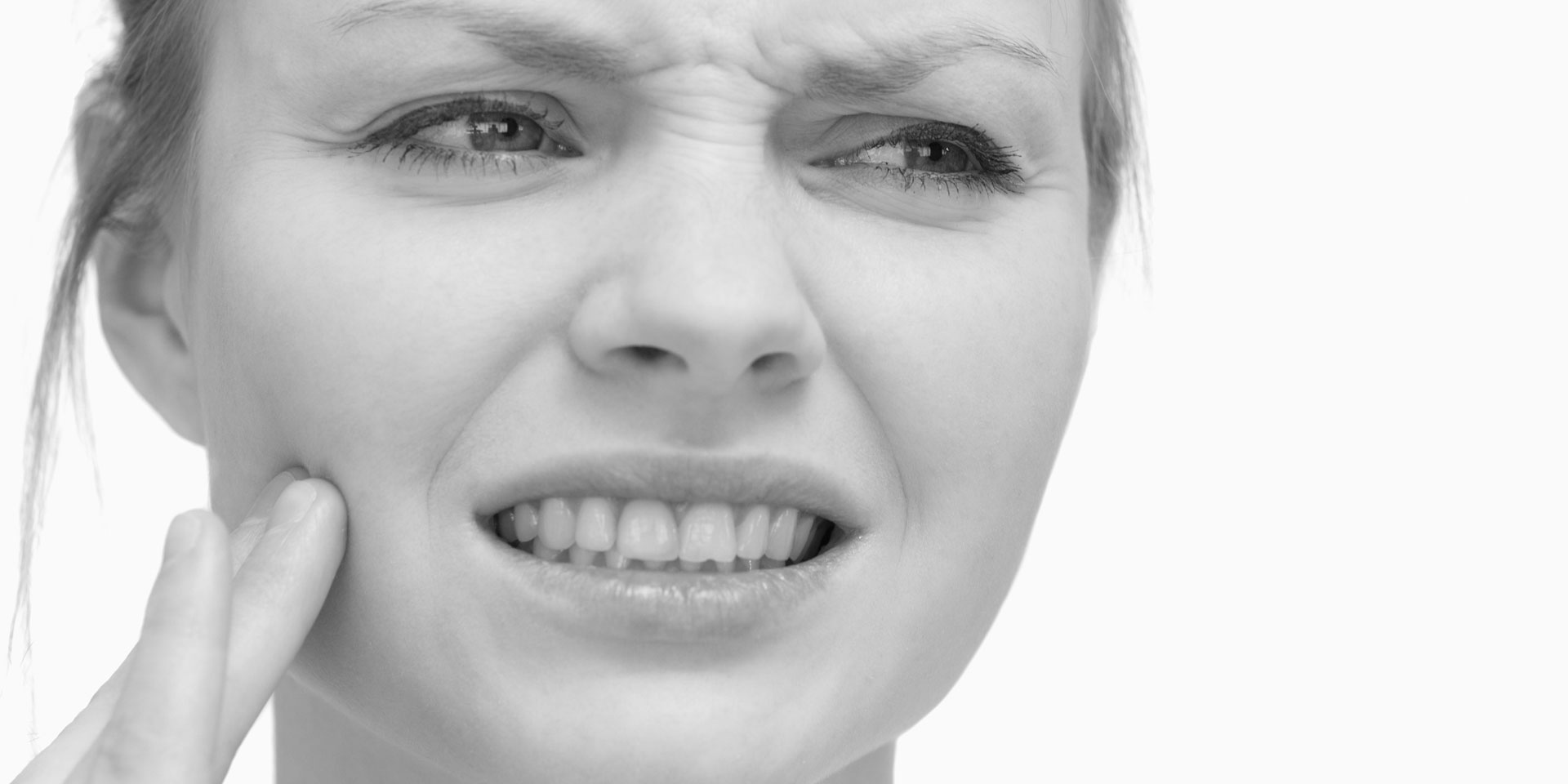
Are You Grinding Your Teeth?
Clenching and grinding of the teeth, known as Bruxism, is a more common issue than most people realize.
Although up to 20% of adults suffer from clenching and grinding their teeth, only about 80% are aware of their condition because it most often occurs unconsciously during the day or while sleeping at night.
What causes people to clench and grind teeth unconsciously?
- Feelings of stress, anxiety, frustration, and tension
- Aggressive, competitive, or hyperactive personalities
- Abnormal alignment of upper and lower teeth
- Earache or teething
- Acid reflux
- Smoking tobacco
- Drinking caffeinated or alcoholic beverages
- Doing illegal drugs such as methamphetamine or
- ecstasy
Bruxism, if experienced during sleep, is often accompanied by another sleeping disorder such as snoring, sleep apnea, violent or injurious sleeping behavior, sleep paralysis, sleep talking, or hallucinations in the state between sleep and wake.
What are the symptoms or side effects?
- Dull, constant headache
- Sore or tightened jaw or face muscles
- Flattened, chipped or loose teeth
- Wearing down of enamel exposing deeper layers of
- teeth
- Tooth sensitivity
- Pain feeling like an earache but not a problem with
- the ear
- Damage on inner cheeks
- Tongue indentions
- Lock jaw
- Complaints from a sleeping partner
If you are experiencing symptoms of teeth grinding or clenching, please contact our office today for an appointment.
Why is it harmful?
Clenching and grinding your teeth can result in more serious oral health issues including fractures, loose teeth, crooked teeth, or teeth worn down to stumps. Other concerns such as abnormal bite and disturbed sleep can occur, along with issues affecting your jaw. TMD/TMJ may develop or worsen, hearing loss may result, and facial appearance may even be altered.
What are the treatment solutions?
At Dayton Dental Collaborative, we offer a variety of treatment solutions based on the severity of the condition. Splints or mouth guards that separate teeth by fitting over the upper and lower teeth can be used in milder cases. Dental correction of an abnormal bite or not properly aligned teeth can be helpful. In severe cases involving sensitivity or the inability to chew, dentists may need to reshape the teeth or use crowns, bridges, implants, dentures or braces.
Treatment and Prevention
Although we may be able to share some self-care ideas, we would first recommend you visit us for a thorough evaluation of your condition.
Beyond dental care, there are some helpful life changes:
- Reduce life stress through listening to music, taking warm baths, or exercising regularly
- Avoid stimulating substances such as caffeinated coffee or tea after dinner
- Avoid smoking or consuming alcohol in the evenings
- Practice good sleep habits and ask your partner to let you know if they hear any grinding or clicking sounds during the night.
The most important step to preventing or treating clenching and grinding is to schedule and attend regular dental exams at Dayton Dental Collaborative so we can spot signs of this condition and help with proactive treatment solutions.
Contact
Call (937) 435-5163 or request an appointment online to set up your first visit. We’ll be in touch soon.
